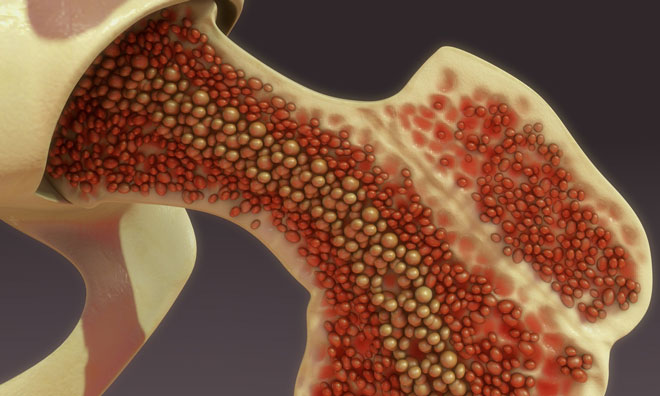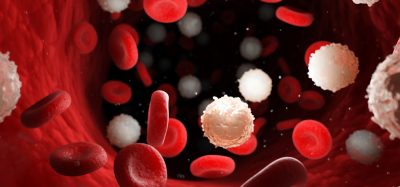BCG alters bone marrow to strengthen anti-cancer response
Posted: 6 June 2025 | Drug Target Review | No comments yet
A new study reveals that BCG, a decades-old bladder cancer treatment, reprograms the immune system at the bone marrow level, offering a new perspective into how this immunotherapy boosts the body’s defence against cancer.


Over three decades ago, the US Food and Drug Administration (FDA) approved Bacillus Calmette-Guérin (BCG) as the first-ever immunotherapy for cancer, specifically for early-stage bladder cancer. Despite its age, BCG remains a crucial part of bladder cancer treatment. Now, new research from Weill Cornell Medicine and Memorial Sloan Kettering Cancer Center (MSK) is revealing a deeper understanding of how BCG works- findings that could change future immunotherapies.
How BCG works: old assumptions vs. new evidence
BCG is a weakened strain of Mycobacterium bovis, originally developed as a vaccine against childhood tuberculosis. When used in bladder cancer treatment, it’s delivered in higher doses directly into the bladder, where it was thought to work by attracting immune cells to attack cancer cells locally.
But scientists had remained uncertain: was the immune response primarily targeting the bacteria, or the tumour itself?
Biomarkers aren’t just supporting drug discovery – they’re driving it
FREE market report
From smarter trials to faster insights, this report unpacks the science, strategy and real-world impact behind the next generation of precision therapies.
What you’ll unlock:
- How biomarkers are guiding dose selection and early efficacy decisions in complex trials
- Why multi-omics, liquid biopsy and digital tools are redefining the discovery process
- What makes lab data regulatory-ready and why alignment matters from day one
Explore how biomarkers are shaping early drug development
Access the full report – it’s free!
“It’s an example of a therapy that was proven to be clinically effective before we fully understood all the underlying mechanisms,” said Dr Michael Glickman, acting director of the Marie-Josée Kravis Center for Cancer Immunobiology at MSK and professor at Weill Cornell Medicine.
New findings: BCG reprograms the immune system at its source
In a study published in Cancer Cell, Dr Glickman and his colleagues demonstrated that BCG’s effects go far beyond the bladder. The treatment reprograms bone marrow stem and progenitor cells, which boost the body’s ability to generate myeloid immune cells with enhanced cancer-fighting abilities.
“Now it’s clear it improves the innate immune system’s ability to fight cancer,” said Dr Steven Josefowicz, co-senior author and associate professor at Weill Cornell Medicine.
Unlike the adaptive immune system, which targets familiar threats, the innate immune system offers broad, rapid defence. The study revealed that BCG trains this innate system not just to respond to bacteria, but to better recognise and fight tumours.
Tracking BCG’s pathway from bladder to bone marrow
Traditionally, it was believed that BCG’s immune effects were limited to the bladder, where it was introduced directly to tumours. But this study shows that BCG travels from the bladder to the bone marrow, where it reprograms hematopoietic stem and progenitor cells- the source of new immune cells.
Using a specialised technique called Progenitor Input Enrichment single-cell sequencing (PIE-seq), researchers traced how BCG altered gene activity in these stem cells in both mouse models and human patients. The result was new immune cells that emerged after BCG treatment were significantly more effective at fighting tumours.
“These findings show that this training of the innate immune system that happens with the BCG vaccine also happens in the context of bladder administration to treat cancer,” said Dr Gil Redelman-Sidi, infectious disease expert at MSK.
BCG and checkpoint inhibitors: a powerful combination
One of the most exciting findings from the mouse studies is the synergistic effect of BCG when combined with checkpoint inhibitor therapy. This is a form of immunotherapy that lifts the “brakes” on immune cells, allowing a more aggressive response to cancer.
BCG-primed myeloid cells were found to enhance the effectiveness of T cells activated by checkpoint inhibitors, leading to greater tumour shrinkage and prolonged survival.
“This has broad implications for immunotherapy more generally,” said Dr Josefowicz. “We now know that this reprogramming of immune cells that happens in the bone marrow that enhances innate immunity responses can be a strategy to enhance the effects of existing immunotherapies.”
What’s next? expanding BCG’s potential
While the idea is still in early stages, the researchers are exploring whether BCG could be used to enhance immune responses in other cancers, not just those of the bladder.
Nevertheless, the findings raise the possibility of designing new therapies that mimic BCG’s immune-training effects, without necessarily introducing live bacteria, especially for patients with cancers not accessible by direct BCG delivery.
Conclusion: a classic treatment, reinvented
This study moves our understanding forward for one of the most established immunotherapies in cancer treatment. By showing that BCG reprograms the body’s innate immune system at the bone marrow level, researchers have found a powerful mechanism that could enhance not only bladder cancer treatment but immunotherapy strategies as a whole.
As scientists continue to decode the immune system’s intricate workings, BCG’s surprising reach may allow for broader, more effective approaches to fighting cancer.
Related topics
Cancer research, Checkpoint receptors, Disease Research, Immuno-oncology, Immunology, Immunotherapy, T cells, Therapeutics, Translational Science
Related conditions
Cancer








